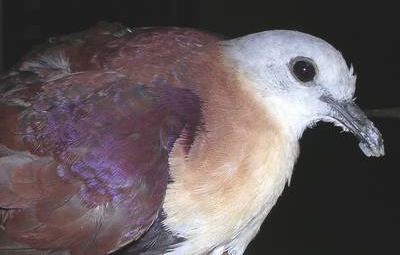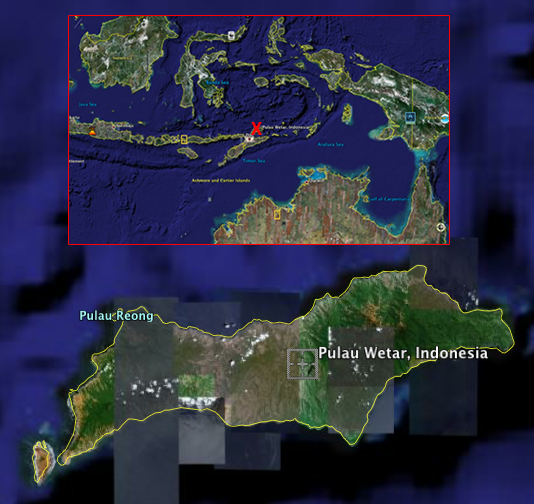Rare bird rediscovered on ‘most pristine’ island in southeast Asia
mongabay.com
October 23, 2008
Scientist have rediscovered the endangered Wetar Ground-dove (Gallicolumba hoedtii), one of the world’s least known birds, 100 years after it was last seen on the remote Indonesian island of Wetar, reports Columbidae Conservation, a UK-based conservation group.
Surveying the rugged, 3600-square-kilometer island for bird life, scientists working for Columbidae Conservation found Wetar Ground-dove to be locally abundant, recording the largest-ever documented gathering of the species of 30-40 birds at a fig tree. The scientists also found the endangered Timor Imperial Pigeon (Ducula cineracea) to be locally abundant. In all, the expedition reported 39 new bird species for the island.
 Colin Trainor/BirdLife. One of the first live photos of the Wetar Ground-dove Colin Trainor/BirdLife. One of the first live photos of the Wetar Ground-dove
|
“Wetar Island is amazing,” said team leader Colin Trainor. “It has an incredible abundance of pigeons and parrots, and bird life in general. For the Wetar Ground-dove it seems very likely that Wetar is the species stronghold.”
“For its size it must be the single most pristine in South-East Asia,” he added.
Wetar, which neighbors the island of Timor, is mountainous and 80 percent forested with cover “ranging from tropical evergreen forest to tropical dry forest, as well as Eucalyptus savannas and hill forest,” according to Columbidae Conservation.
Still while the island is remote, is faces development pressure, including the construction of a road that could open up previously inaccessible areas. Columbidae Conservation says its surveys will be used to push for conservation of the island’s unique habitats.
“Even without yet completing the fieldwork and analysing the data it’s very clear that Wetar is a very high conservation priority in the region,” said Dr. Jonathan Walker, director of Columbidae
Conservation.
